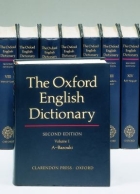 Watching a programme on BBC4 about the indigenous Taino people of the Caribbean (Lost Kingdoms of Central America – The people who greeted Columbus – currently available to view on iPlayer) I was reminded again just how many languages contribute toward the English we know and use today. It seemed amazing that the word ‘canoe’ actually came from these islands so far away. They called theirs ‘canoas’.
Watching a programme on BBC4 about the indigenous Taino people of the Caribbean (Lost Kingdoms of Central America – The people who greeted Columbus – currently available to view on iPlayer) I was reminded again just how many languages contribute toward the English we know and use today. It seemed amazing that the word ‘canoe’ actually came from these islands so far away. They called theirs ‘canoas’.
Canoe is of course not the only ‘English’ word to originate in a far flung place. The language grows all the time as we communicate on a global scale. One of the best and most entertaining ways to begin looking into this is to consult the Oxford English Dictionary (log in with your library card), a place to discover all sorts of unusual words, look at their origins and expand our own vocabulary. In its online form it is continuously added to, consists of 600,000 words and states that it is: “Widely regarded as the accepted authority on the English language”.
It would be impossible to carry all 20 of the physical volumes around with you and most of us would be hard pushed to find space in our homes, so it’s great to have online access with your library card. Go ahead – use it to find out what a word means (it’s thoroughly reliable), where it comes from or, if you wish, to find another with the same meaning (it has a great thesaurus)!
[Owen]

In addition to the Oxford English Dictionary there is also the Oxford Dictionaries Online Pro resource website both of which include blogs and message boards relating to individual words often heated debate over whether a word such as “selfie” should be added to the dictionary.i.e. is this word in transient use or has it staying power.
LikeLike